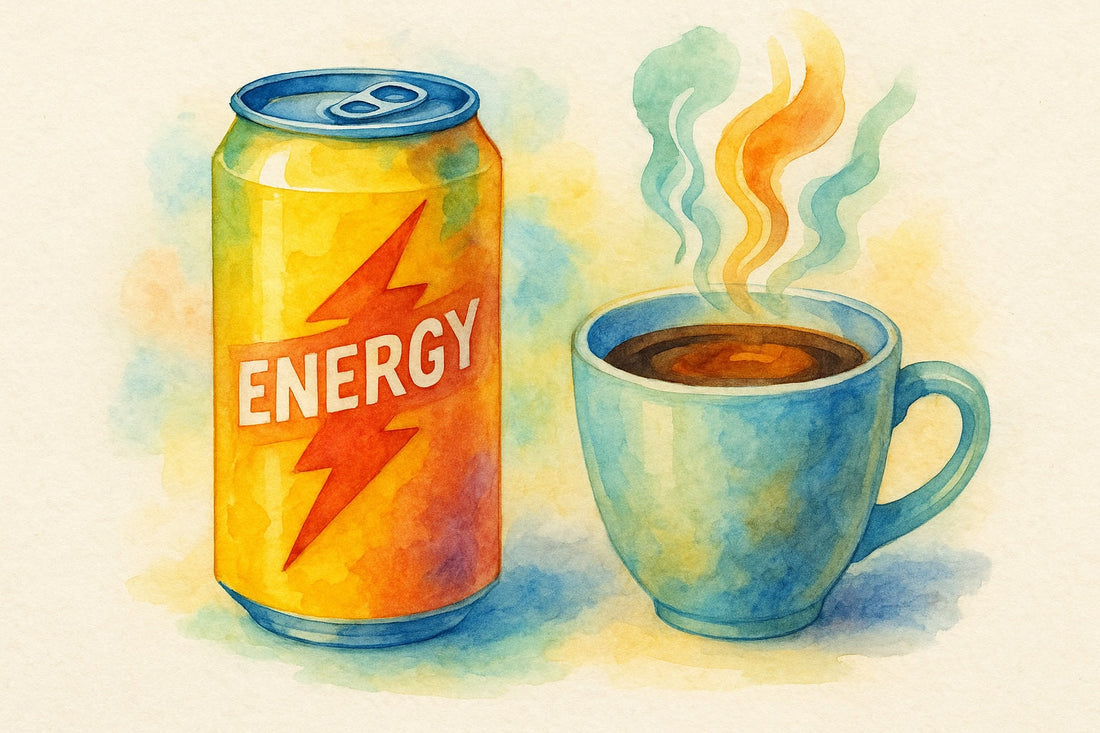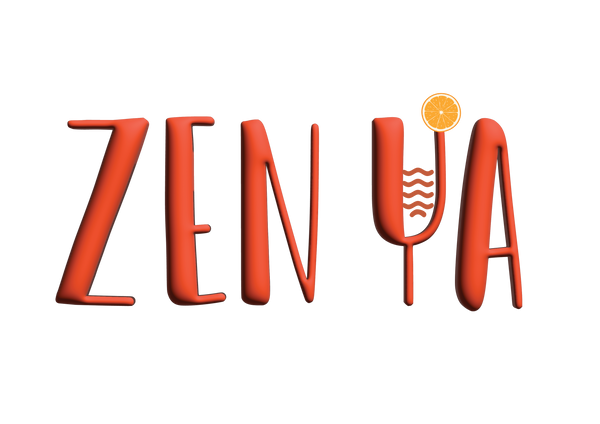
Do Energy Drinks and Coffee Really Boost Your Energy — Or Just Set You Up to Crash?
Share
You feel drained, foggy, or just plain done.
What’s the go-to fix?
A shot of espresso. An energy drink. Maybe two.
But here’s the thing:
That instant jolt of energy you feel?
It’s often followed by a sharp crash — leaving you more tired, jittery, and wired than before.
So what’s really going on?
Let’s break down the buzz, the biology, and the big caffeine lie.
The Appeal: Quick Energy in a Bottle
Energy drinks and strong coffee feel like magic. Why?
Because they:
- Stimulate your central nervous system
- Temporarily block adenosine, the hormone that makes you feel sleepy
- Trigger a dopamine rush (hello, good mood + productivity)
- Often come loaded with sugar, which spikes your blood glucose fast
Result: You feel awake, focused, and powered up… for a while.
The Crash: What Comes Up, Comes Down
That borrowed energy? You have to pay it back. Here’s how:
- Caffeine wears off in 3–6 hours - cue fatigue, brain fog, and irritability
- Blood sugar spikes from sugary drinks lead to insulin spikes - then sudden drops → energy dips, hunger, and mood swings
- Your body builds tolerance - so next time, you need more to feel the same boost
The more you rely on artificial energy, the more you need it — and the worse your natural energy baseline gets.
Energy Drinks in Particular: The Hidden Problems
- High sugar + high caffeine = double crash
- May contain synthetic additives, preservatives, and stimulant blends
- Often cause jitters, dehydration, and sleep disruption
- Not designed for long-term energy — only temporary alertness
Some even include ingredients like guarana or taurine that amplify the effect of caffeine - whether your body’s ready or not.
What Studies Say
- Caffeine improves alertness and focus — in the short term
- But overuse is linked to:
- Anxiety, insomnia, and digestive issues
- Rebound fatigue
- Increased dependency
- Many energy drinks exceed the recommended daily caffeine limit (400 mg/day for adults)
Research is clear: Caffeine isn’t harmful in moderation, but energy from caffeine isn’t sustainable without other support.
Stimulate Less, Balance More
Coffee and energy drinks aren’t the villains — but relying on them constantly can throw your body off balance.
- Overuse of stimulants can lead to anxiety, fatigue, and digestive discomfort over time
- Instead of jolting your system awake, focus on:
- Supporting natural energy through hydration and mineral balance
- Eating balanced meals that include slow carbs and protein
- Building energy through rest, movement, and rhythm, not just caffeine
True energy comes from consistency, not quick fixes.
Natural Energy > Borrowed Energy
Here’s how to support energy that lasts, without crashes:
Hydrate with minerals
Dehydration is one of the biggest hidden causes of fatigue
Eat slow-releasing carbs + protein
Think sattu, nuts, seeds, and whole grains — not sugary snacks
Get outside & breathe
Sunlight, fresh air, and movement reset your energy rhythm
Use caffeine strategically
Morning = fine. Afternoon = avoid if you’re crashing
Truth or Trend?
Trend: Energy drinks and coffee = real energy
Truth: They’re stimulants, not sustenance. You get alert - then you crash
Verdict: Don’t borrow energy. Build it.
FAQ: Energy Drinks, Coffee & Real Energy
Is caffeine bad for you?
Answer:
Not in moderation. 1–2 cups of coffee daily is fine for most people. Problems arise with overuse or when used as a substitute for rest, food, or hydration.
Why do energy drinks make me crash?
Answer:
They spike your energy and blood sugar quickly — then drop it just as fast. That’s why you feel more tired later.
Is black coffee better than energy drinks?
Answer:
Usually, yes. Black coffee is simpler and doesn’t contain added sugars or preservatives. But it’s still best in moderation.
How do I know if I’m too dependent on caffeine?
Answer:
If you feel like you can’t function without it, experience irritability or headaches when skipping it, or rely on multiple cups a day — it’s time to rethink your energy habits.
What are better ways to boost energy naturally?
Answer:
Hydrating with electrolyte-rich drinks, eating balanced meals, getting sunlight, managing sleep and stress, and moving your body — these build real energy, not borrowed spikes.
ZenYa’s Take: Fuel First, Don’t Crash Later
At ZenYa, we believe energy should feel steady, not spiky.
That’s why we made a natural energy drink that:
- Hydrates you with black salt + lemon + roasted cumin
- Fuels you with plant protein and slow carbs from sattu
- Supports digestion instead of stressing your gut
- Has no caffeine, no sugar, and no crash
It’s how your body wants to be energised — one sip at a time. Try ZenYa now



